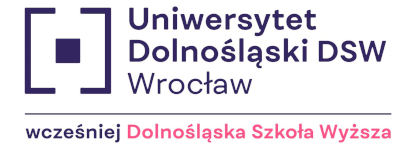ESREA – European Society for Research on the Education of Adults
Life History and Biography Network
The Annual Conference in 2022 will be hosted by
Dolnośląska Szkoła Wyższa/ University of Lower Silesia
Wrocław, Poland
Thursday 3th to Sunday 6th March 2022
Encountering the other: biographies, spaces and relationships in adult education
Check the conference website for details

The Network
Since its first meeting in Geneva, ESREA’s Life History and Biography Network (LHBN) has been a forum for a wide range of researchers, including doctoral students, drawing on different disciplinary backgrounds, and coming from every corner of Europe, and beyond.
The Network has been meeting for 29 years, with annual conferences centred on the role of biographical narratives, storytelling, subjectivity and intersubjectivity, as well as memory, in researching human lives and experiences of learning. Thematic and methodological interests, as well as dissatisfaction with dominant research methods and epistemologies, have drawn diverse researchers together, from different contexts, language communities and varying preoccupations. Our conferences are based on the recognition and celebration of the diversity of methods, approaches and epistemologies in researching adult education and learning. Our aim is to create spaces for dialogue, reflexivity and discovery, in order to sustain trustful collaboration, publications and collaborative research projects.
The 2022 Conference Theme
The 2022 conference will concentrate on encounters with the others in the context of adult education in its broadest sense. We aim to encourage submissions focusing on moving into different physical, cultural, political, psychological, and ecological spaces. As we enter new spaces and encounter the other, questions can be asked about relationships between the vulnerable and the powerful, those who are valued and respected and those marginalized and stories that represent the past and present. Clearly, this can focus on traditional educational spaces along with historic and current experiences of colonialism and imperialism, human incursions into the non-human world and the experience of migrants seeking safer worlds. The importance of rich contextual biographical and narrative research will be evidenced in the nuance and meaning that can emerge from thoughtful and relational methodologies.
Our worlds are complex. Stories can sustain our understanding of the individual (micro) level, and or of relationships in families, workplaces, communities, organizations (the meso level); and of the big processes of change in history, in the larger society, and even the whole planet (macro level); including the virtual world. So, ‘living’ may be understood within complex interactions with others, with diverse processes, systems and in our encounters with the physical as well as virtual world. This is the complexity of life and living that the Life History and Biography Network seeks to investigate, which is a question too about the vitality of the network itself. How much, in other words, does the Network enliven and enrich the educational, social, political and relational imagination of those who participate?
In order to make a proposal, and bring your contribution to the conference, you may wish to consider:
- The emergent philosophical and theoretical themes that inform different perspectives on stories, and of methodological stances.
- The interactions between research, practice, and policy, by presenting pieces of research that have been influenced by a need and/or are aimed at shaping policy and practice – or any mix of these.
- The multiplicity of philosophical, political, theoretical and methodological stances in biographical research, alongside values, assumptions and practices.
We are particularly interested in the role of research as a response to adult lifelong learning opportunities and experiences, alongside the difference that our work can make.
We also hope the conference will integrate the community of researchers of life history and biography after such difficult experiences of social isolation and provide a space that will allow us to reflect on the consequences for human flourishing.
Abstract submission
Proposals can be for individual papers, posters or group symposia/workshops.
You will submit the abstract via the form on the conference website only.
The title of the abstract should be clear and be linked to an aspect of the call.
The abstract should include no more than 500 words of text.
There should be no references.
There should be 4 to 6 keywords.
Schedule
The new deadline for submission of abstracts: Monday 20th December 2021
All proposals for papers, symposia, workshops, or posters will be double-blind peer-reviewed by members of the Scientific Committee and the submitters will be informed via email about their status by mid-January 2022.
Following the last year's conference, we intend to make submissions available on the website before the conference. Final papers, posters or recorded presentations will be uploaded to the conference programme. Details shall be provided after the acceptance of submissions.
In the meantime, if you have any questions please contact Wroclaw’s organizing team at: LHBN2022@dsw.edu.pl
or
Alan Bainbridge at alan.bainbridge@canterbury.ac.uk
Laura Formenti at laura.formenti@unimib.it
 Jesteś w dobrym miejscu! Zmieniliśmy nazwę na Uniwersytet Dolnośląski DSW!
Jesteś w dobrym miejscu! Zmieniliśmy nazwę na Uniwersytet Dolnośląski DSW! 